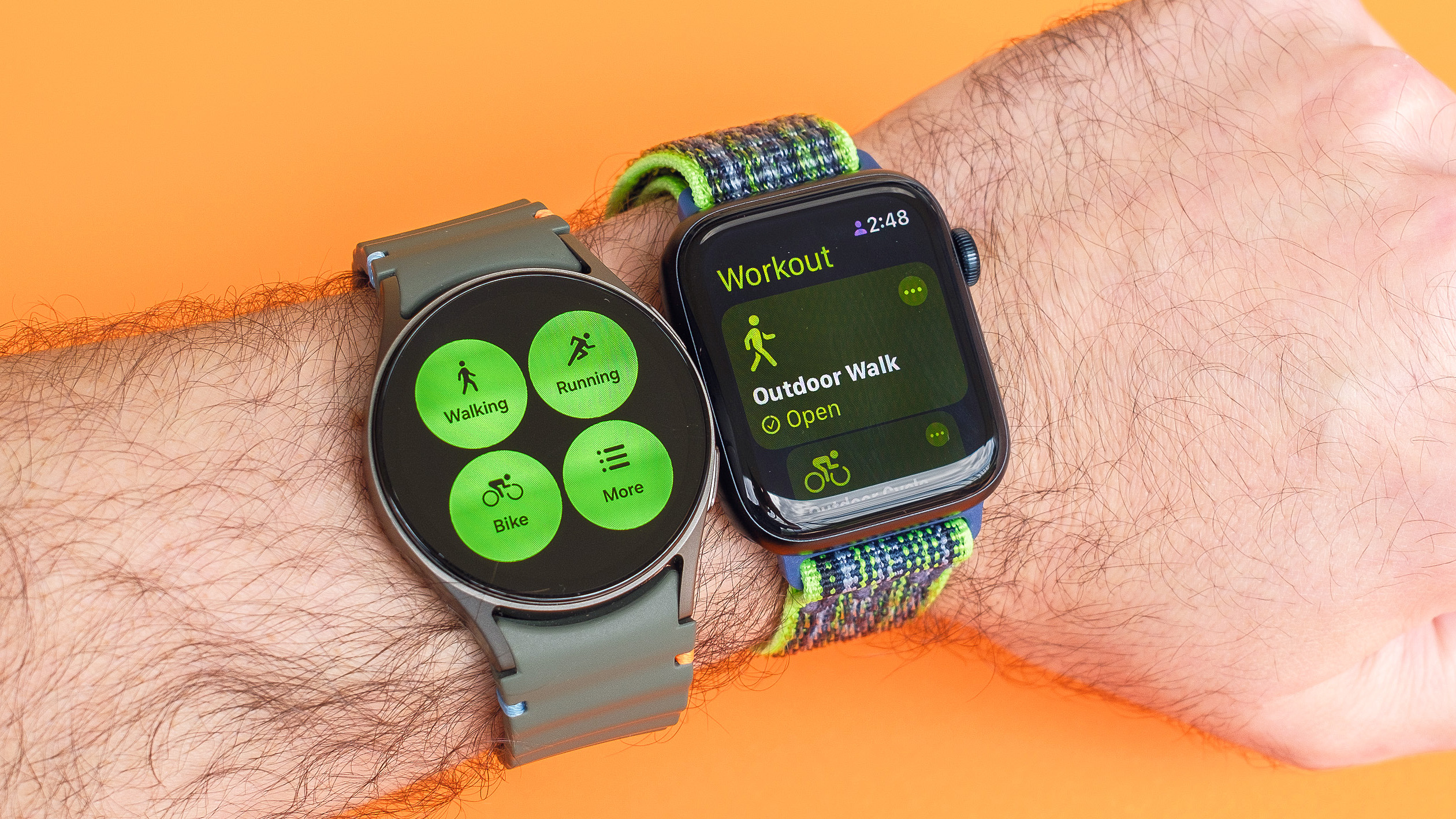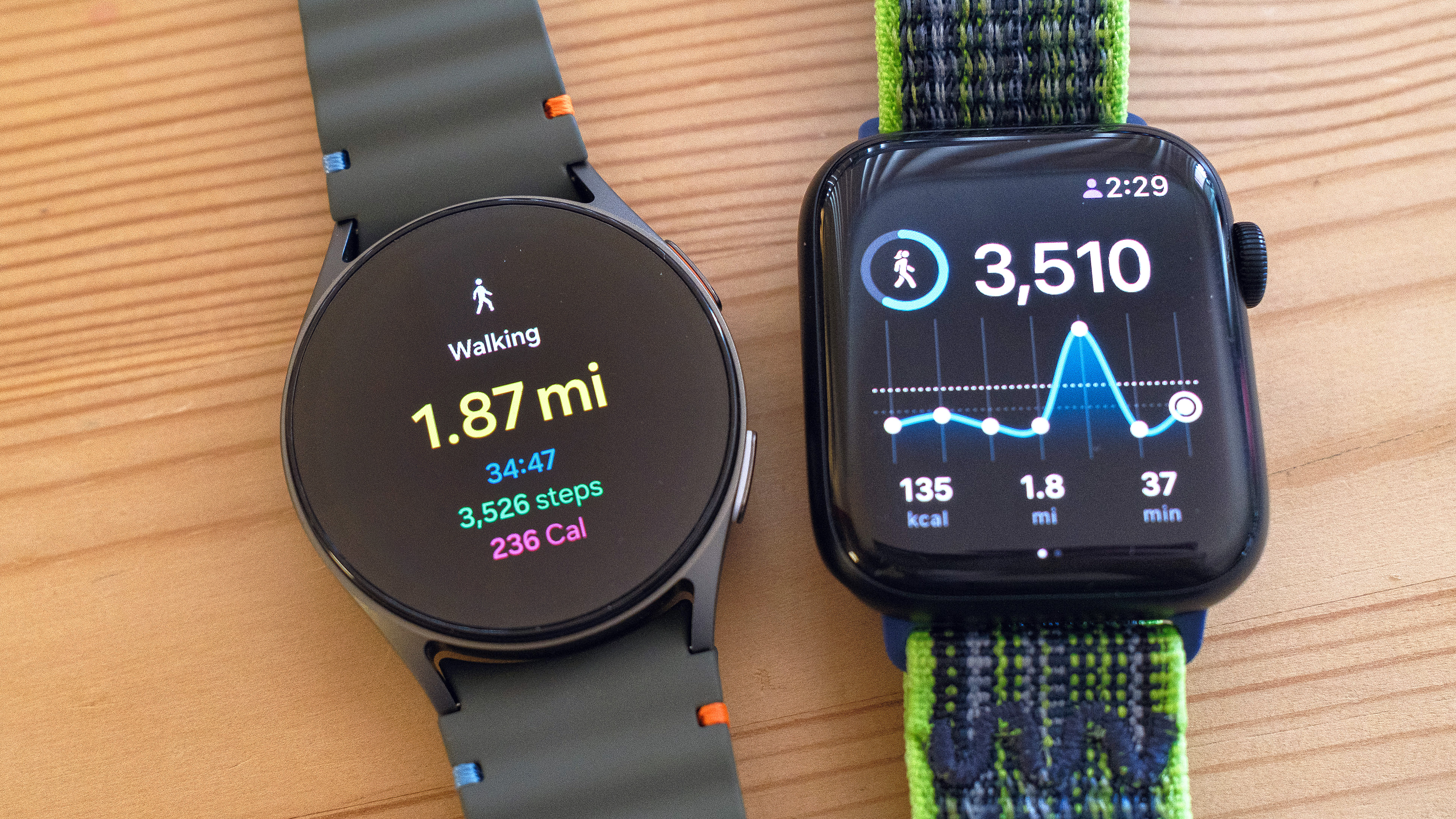
Have you ever wondered which smartwatch brand is better at tracking your daily steps, Apple or Samsung? I sure have.
To find out, I wore the new Samsung Galaxy Watch 7 on one wrist and the latest Apple Watch SE on the other before heading out on an afternoon walk, manually counting each step as a control.
Which device was closest to my total of 3,500 steps? You'll have to read on.
Galaxy Watch 7 vs. Apple Watch SE: features and price
The latest Apple Watch SE was released in 2022 and starts at $249; the Samsung Galaxy Watch 7 was released in July 2024 and is priced at $299 and up. The former is an entry-level device, the latter is Samsung's mid-tier smartwatch.
While the Apple Watch SE vs. Samsung Galaxy Watch FE, or, the Apple Watch Series 9 vs. Samsung Galaxy Watch 7 would've ultimately been a closer matchup, I worked with the devices I presently have at my disposal.
Price and positioning aside, the Apple Watch SE 2022 and Samsung Galaxy Watch 7 share the same basic fitness tracking capabilities. Sure, one is square and runs watchOS while the other is a circle and runs Wear OS, but both keep tabs on heart rate, distance, elevation gain, calories burned, and of course, steps taken.
That said, the new Galaxy Watch is way more jam-packed with general wellness technology than the Apple Watch SE, including a body temperature, ECG, and blood oxygen sensor (all absent on the SE). You also get just shy of 24 hours of default battery life with the Samsung compared to around 18 hours with the Apple.
Still, both have onboard GPS, accelerometers, and altimeters for tracking activities like outdoor walks. So, for our purposes, neither has any particular advantage when it comes to this test.
Galaxy Watch 7 vs. Apple Watch SE: step accuracy test
To assess which device is the better step counter, I took a lovely afternoon stroll around my neighborhood and manually counted my steps... silently, mind you. Every time I hit 100, I clicked an old-school tally counter and started over again at one.
I wore the Samsung Galaxy Watch 7 on my left wrist and the Apple Watch SE 2022 on my right. For tracking, I used the default apps on each: Samsung Health and Apple's Workout app.
From experience, I know that Apple makes it extremely difficult to see a step count total for individual walks. Instead, you get a daily total. (I've complained about this before and it's worth pointing out that Apple isn't the only brand that takes this approach).
So, at the suggestion of my colleague, Jane McGuire, I downloaded and also recorded my walk on the Apple Watch SE using the StepsApp, available for free in the App Store and Google Play Store.
Here's how the results compare.
Galaxy Watch 7 vs. Apple Watch SE: the results
Nothing makes me happier than seeing data that mostly matches up across the board. Keeping in mind a little wiggle room for error, the Apple Watch SE recorded 3,510 steps and the Samsung Galaxy Watch measured 3,526, results I'd classify as extremely accurate.
Distance, ascent, and heart rate data also look remarkably similar between the two smartwatches. The most notable differences are that the Galaxy Watch calculated 38 more calories burned and a 46-second quicker pace than the Apple Watch.
Verdict: Apple Watch SE wins

Ultimately, both devices performed with flying colors, but the Apple Watch SE (2022) was only off from my manually counted total by ten steps; the Galaxy Watch 7 overcounted by 26. This makes the Apple Watch our winner.
Of course, while it's fun to test these devices head to head — even if it occasionally results in splitting hairs — all of the best fitness trackers and best smartwatches available today are capable of accurately recording your workouts. So pick one and stick with it! That's what counts the most.







